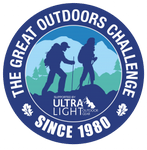What happens after you plan your route…
When you submit your Challenge route, the coordinators will send it to a route vetter for checking. The vetters are all very experienced and have many Challenge crossings to their name. They naturally have different areas of expertise and the Coordinators try to match the route with the most suitable vetter where possible.
Vetters will primarily assess your route sheet for:
(a) safety
(b) accuracy
(c) whether it can be followed quickly and easily by Challenge Control.
(d) suitability for the experience of the Challenger(s) concerned
They will offer comments which are aimed at helping you to complete the Challenge safely and enjoyably.
Vetters will also offer comments based on their shared knowledge with regard to problems you may encounter, e.g. rivers that may be difficult to cross when in spate, and also any ongoing developments such as wind farms that we are aware of if they might affect your route. However the Challenge area is vast so they cannot know all the hazards you may encounter. For example bridges in remote areas may have disintegrated or been swept away or new deer or electric fences may have been erected. Part of the Challenge is dealing with obstacles when you find them.
Vetters take into account the experience of the Challenger(s) submitting the route including the Experience Form of first time participants. They will offer advice on any days which they feel are excessive in terms of length and/or difficulty and will often suggest alternatives.
Comments and Revisions
Once your vetter has completed their review they will send their comments to the Coordinators who will read them and pass them on to you. It can take up to three weeks from submitting your route to receiving your comments as our vetters are volunteers and many still work for a living!
Vetters take a great deal of time and trouble to provide a full and fair assessment of your route. Please consider the comments you receive carefully and take heed of them.
It is relatively uncommon for a route to be rejected outright but it has happened and if this is the case, the reasons for rejection will be given. As far as alternatives are concerned, vetters can only offer suggestions based on their knowledge and experience. Often their comments will be advisory and whether you accept these suggestions is up to you. However, for around half of routes, the vetter and Coordinators will require changes before the route can be accepted. The most common reason for revisions is inappropriate or missing Foul Weather Alternatives. Your vetter or the Coordinators can help if you are stuck.
Experience over the years has shown that taking your vetter’s advice will generally lead to a more enjoyable and safer route.

